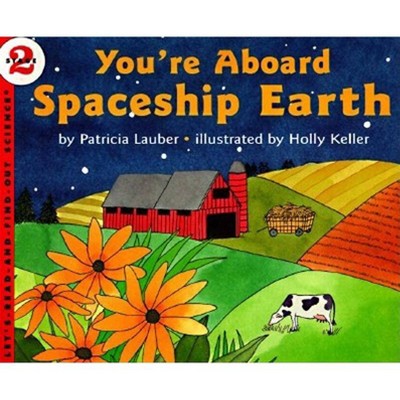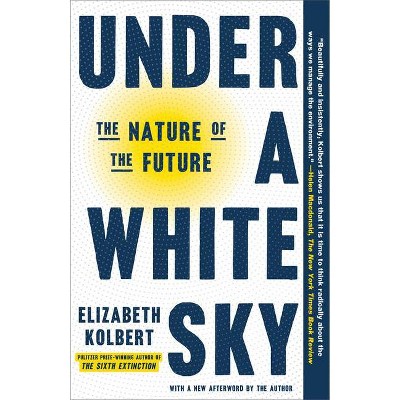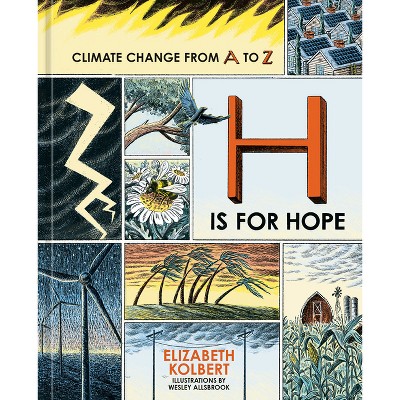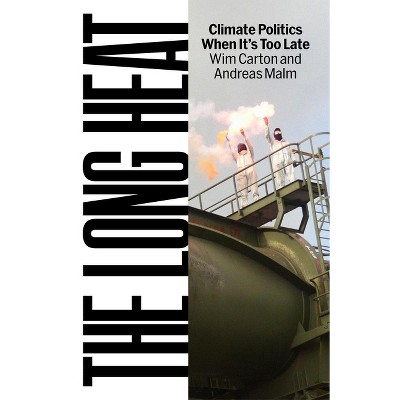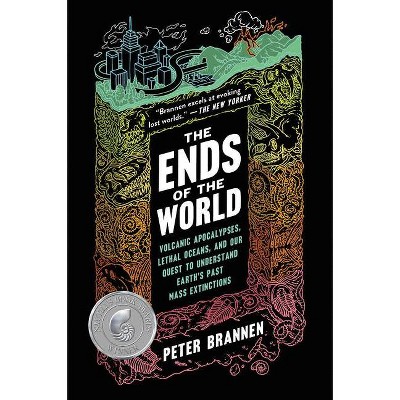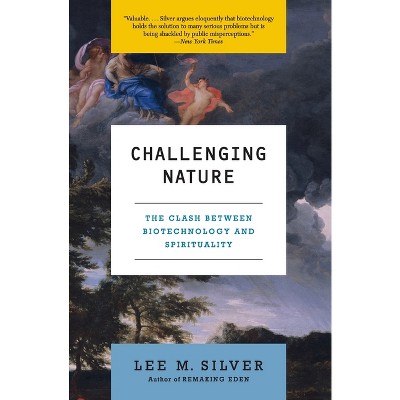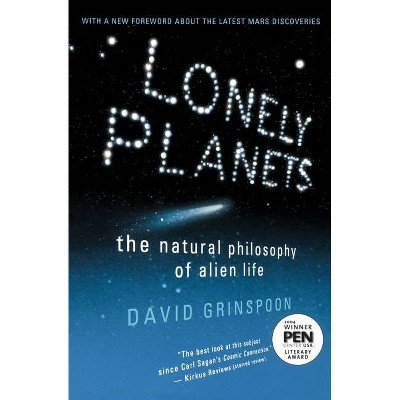Sponsored

The Story of CO2 Is the Story of Everything - Large Print by Peter Brannen (Hardcover)
In Stock
Sponsored
About this item
Highlights
- "Ambitious, absorbing... Brannen is an effusive, maximalist writer, a mind vividly alive on the page... and his arguments, like his writing, are hugely compelling.
- Author(s): Peter Brannen
- 512 Pages
- Science, Environmental Science
Description
About the Book
"How carbon dioxide made planet Earth, shaped human history, and no w holds our future in the balance. Every year, we are dangerously warpin g the climate by putting gigantic amounts of carbon dioxide into the air But CO2 isn't merely the by-product of burning fossil fuels--it is also fundamental to how our planet works. All life is ultimately made from CO2, and it has kept Earth bizarrely habitable for hundreds of millions of years. In short, it is the most important substance on Earth. But how is it that CO2 is as essential to life on Earth as it is capable of destroying it?"--Provided by publisher.Book Synopsis
"Ambitious, absorbing... Brannen is an effusive, maximalist writer, a mind vividly alive on the page... and his arguments, like his writing, are hugely compelling."--The New York Times Book Review
How carbon dioxide made planet Earth, shaped human history, and now holds our future in the balanceEvery year, we are dangerously warping the climate by putting gigantic amounts of carbon dioxide into the air. But CO2 isn't merely the by-product of burning fossil fuels--it is also fundamental to how our planet works. All life is ultimately made from CO2, and it has kept Earth bizarrely habitable for hundreds of millions of years. In short, it is the most important substance on Earth. But how is it that CO2 is as essential to life on Earth as it is capable of destroying it?
In The Story of CO2 Is the Story of Everything, award- winning science journalist Peter Brannen reveals how carbon dioxide's movement through rocks, air, water, and life has kept our planet's climate livable, its air breathable, and its oceans hospitable to complex life. Starting at the dawn of life almost 4 billion years ago, and working all the way up through today's global climate crisis and beyond, he illuminates how CO2 has been responsible for the planet's many deaths and rebirths, for shaping the evolution of life, and for the development of modern human society. And he argues that it's only by reckoning with this planetary-scale history that we can understand the cosmic stakes of our current moment on Earth--and how dangerous our experiment with the climate really is.
Drawing on groundbreaking research and with a clear- eyed perspective, Brannen shows how a deep exploration of the carbon cycle can shed light on the way forward for humanity as we try to avert environmental catastrophe in the future. And it all begins with a richer understanding of the critical role of CO2 in our world.
Review Quotes
"Ambitious, absorbing...Many fascinating deep dives...While Brannen doesn't shy away from the fearsome shape of our future, he finds ample joy in this deep-time journey, unafraid to puncture his expertise with gob-smacked wonder. And he takes great pleasure in language, always spry with a sentence...Brannen is an effusive, maximalist writer, a mind vividly alive on the page...And his arguments, like his writing, are hugely compelling. Entwined with his proselytizing for the importance of CO2 is another, more meaningful assertion, one that gives the book both tenderness and gravity." - New York Times Book Review
"[Brannen] has a gift for translating recondite scientific facts into gorgeous psychedelic passages that verge on pure poetry. This is history on a heroic scale." - The Times of London
"For his second [book, Brannen] has higher ambitions, taking readers on dizzying jaunts through deep time to reframe our understanding of what may be the most vilified and misunderstood molecule on Earth...From the ancient past to the present day, Brannen makes the case that to understand CO2 is to understand the very fabric of our world." - Scientific American
"Vividly grim, yet one of the most sweeping attempts yet to make sense of how we got here and where we're (likely) going. A good choice for readers interested in sustainable energy, climate change, and earth systems. - Library Journal
"A rousing call to action...Comprehensive and compelling...Brannen deftly weaves his narrative, bringing to life the story of CO2 and its importance to all life forms...This book...regularly evokes a kind of child-like wonder - and it does so for a subject that is so completely woven into our everyday life that we take it for granted...[Brannen becomes] ever more persuasive as he reaches his conclusion." - New Scientist
"Peter Brannen offers a completely new vision of Earth and human history that will change your perspective forever. One vital, misunderstood molecule is revealed as the animating force behind everything that has ever happened on this planet--from the assembly of microscopic plankton seashells to the rise and fall of human empires. If we are smart, this impressive, beautifully written book will be a lodestar for the current generation's most important decisions."
- Rebecca Boyle, author of Our Moon
"As with everything Peter Brannen writes, this is fascinating; deep history brought vividly to life. But it's also crucial--our ability to understand and act on it will determine how the next period in earth's history unfolds."
- Bill McKibben, author Here Comes the Sun
"What a brilliant and epic book this is! From the magical transformation of CO2 into the first life to our current flailing attempts to pump less of it into our atmosphere, Brannen gives us a sweeping history of the planet in a single molecule. I study this stuff for a living and still learned so much--how coal nearly froze the planet, why the rocks beneath our feet allow us to breathe, and the origins of our modern industrial world. This book is a collection of wonderful things woven together into a fascinating, terrifying whole."
- Kate Marvel, author of Human Nature
"In this urgent and astounding book, Brannen weaves together the entire history of Earth, and the origins and tribulations of life over billions of years, with the predicament we find ourselves in today. With the lyricism of John McPhee and scientific bona fides rivalling any academic geologist, Brannen is in a class of his own as the preeminent scribe of Earth science today. This is the book that I want all of my Earth science students to read, and every policymaker and politician too."
- Steve Brusatte, University of Edinburgh paleontologist and New York Times/Sunday Times bestselling author of The Rise and Fall of the Dinosaurs
"Peter Brannen delivers a moving and magisterial tribute to the magic-seeming chemical interplay of air and rock, plant kingdom and ocean expanse, which scientists dryly call the 'carbon cycle.' Upon it, he shows, absolutely all life rests--with growing, and unnerving, precarity." - David Wallace-Wells, New York Times bestselling author of The Uninhabitable Earth
"A rich geological history and an overdue examination of the costs and benefits of what humans have built with our extravagant use of a chemical compound. A thrilling exploration of Earth's tumultuous history, its tenuous present, and a future in grave doubt." - Kirkus
"An absolutely essential book by one of my favorite minds. . . This flowed into my world like a brilliant wake-up call." - Jorie Graham, Pulitzer Prize-winning poet
Shipping details
Return details
Frequently bought together
Guests also viewed



